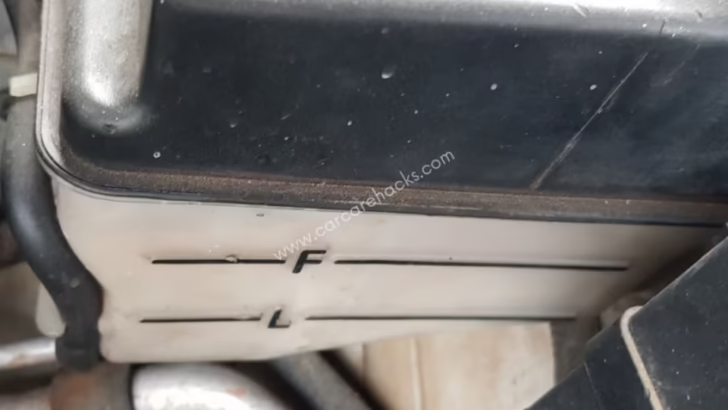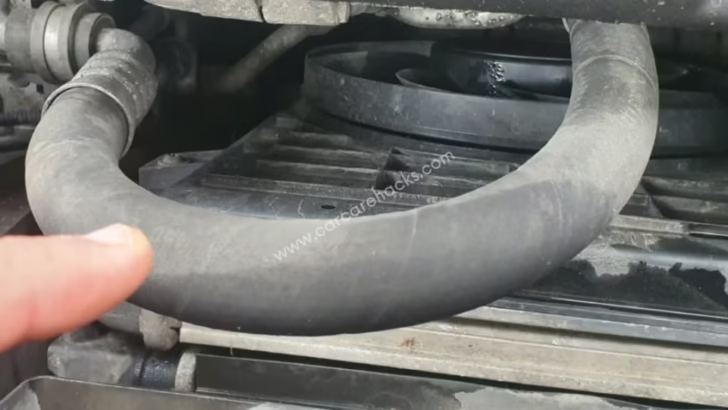When winter comes, there is nothing worse than driving a car with no heat. Apart from not being able to heat up the cabin for comfort, you won’t be able to defog your windshield. When a vehicle has no heat, most people think of a bad blend door actuator or a failed AC component. But, did you know that a bad water pump can cause no heat in vehicles?
Key Takeaway
- A bad water pump can cause no heat because the heater core requires hot coolant to be circulated in order to release heat in the cabin.
- To see what is causing no heat in your vehicle, monitor the temperature gauge and see how long it takes for the engine to heat up. If it takes longer than fifteen minutes for the engine to warm up, the thermostat is bad and needs replacing.
- Check the coolant level and add more if needed. Without coolant, there will be no heat in the car.
- Inspect the radiator hoses for any blockages.
- A bad water pump will not throw a trouble code because it is a mechanical part and has no sensors.
Does A Bad Water Pump Affect Heat?

A bad water pump can affect the heat and cause no heat in your vehicle. The vehicle is getting hot air inside the cabin because the water pump is circulating hot coolant through the heater hoses, into the heater valve, and the heater itself. When you adjust the heater control module to blow heat, that heat from the coolant that the water pump brought to the heater core is released to the cabin by the blower motor.
There are many parts involved in the production of hot air in car cabins. The radiator, thermostat, water pump, heater hoses, heater valve, blower motor, relays, heater core, and heater/AC control module. All of these components have different tasks. But in the end, this is how the car cabin gets hot air.
When you start the engine, the water pump is immediately activated and starts pumping coolant through the engine. Have you noticed how the vehicle isn’t able to produce heat as soon as you start it? Well, that is because the coolant in your vehicle is still cold. As soon as the engine gets hot, the coolant absorbs that heat and with the help of the water pump, the hot coolant gets to the heater core.
When the hot coolant gets to the heater core thanks to the water pump, it has the ability to produce heat. At this point, you need to adjust the heater control module inside your vehicle and the signal would be sent through relays. This will tell the blower motor to either start blowing faster or slower, depending on the settings and you will have heat inside the car. None of this is possible without a properly functioning water pump.
What To Check If The Heat Is Not Working In a Car?

If the heat is not working in your car, you should first make sure that the engine is warmed up, then check the coolant level and make sure that it is topped off. If everything is alright, proceed to check for coolant flow obstruction as well as air flow distribution problems.
1. Monitor the engine temperature gauge

If you are getting no heat coming out of the vents, the first thing you can check is your engine temperature gauge. You need a hot engine in order to get heat inside the car. Normally, your engine should reach its operating temperature within 10 to 15 minutes of operating the vehicle. But, if your engine temperature lingers at the bottom of the gauge for 30 minutes, you may want to look into replacing your thermostat.
The purpose of a car thermostat is to regulate the temperature of your car’s engine. If the thermostat is stuck open, it will allow coolant to flow out of the engine and cool down. This will prolong the warming-up time and in the meanwhile, you will not have heat in your car.
2. Check the coolant level

The engine cooling system circulates the hot coolant from the engine through the heater core. A heater core is a small radiator behind the dash. The heater core is usually placed above the rest of the cooling system. So, if there is a leak in the system, it will be the first component to lose the coolant supply. If that is the case, you may notice water flowing sound behind the dash.
A common mistake people make when they are checking the coolant level is they check only the overflow tank. Don’t forget to check the radiator as well. But make sure the engine is cold before opening the radiator cap. Nine out of ten, topping off your cooling system will take care of the heating problem.
3. Obstructions in the coolant flow

The third thing to check if the heat is not working in your car is a restriction of coolant flow to the heater core. A clogged-up heater core or pinched heater hose can also lead to no heat. If you open the hood on any car and look at the very back of the engine compartment, you’ll find two rubber hoses going into the firewall. Those are heater core hoses providing hot coolant from the engine to the heater core.
Make sure they’re not pinched or kinked because they can get jammed under something like an engine cover, or get routed poorly after repairs.
4. Check if the heater core is clogged up

If your coolant looks rusty and gunky, you can bet that your heater core doesn’t look much better. Being smaller than the actual radiator, the heater core can get clogged up easier. To check if your heater core is clogged up without removing any parts, you will need an infrared thermometer. Turn on the vehicle and with the engine warmed up, set the temperature and the blower to the highest.
Then, measure the temperatures on both of the heater hoses. The temperatures should be around 200 degrees Fahrenheit, and the accepted difference in temperatures between the hoses should be no more than 30 degrees Fahrenheit. If the difference is larger, there is a good chance that the heater core is clogged.
5. Check the air distribution system

By air distribution system I mean the blower motor and the blend door actuator. Your car could be blowing heat, only the intensity could be low. If you turn the blower motor to full blast, but you can barely feel any air coming out the vents, check the cabin air filter. If your blower motor isn’t coming on as you adjust the settings, you should check relays and fuses to see if power is getting to it.
Another common problem with the air distribution system is the blend door actuators. The blend door actuators have the purpose of redirecting the heat (windshield, center console, back, etc). Make sure to test if there is no heat anywhere. However, if you are getting heat on the passenger side, but not on the drivers, you should replace your blend door actuators.
Will Low Coolant Cause No Heat?

Yes. Low coolant will cause no heat in your vehicle because hot coolant circulated to the heater core is how you get hot air inside the cabin. When the coolant is low, not only will you have no heat in the vehicle, but the engine will overheat.
When you first start your car, the water pump is immediately engaged and starts circulating coolant. Now, with a cold engine, the coolant won’t do much when it comes to heating up the cabin. This is why the coolant circulates only around the engine to absorb the heat as fast as possible.
Once the engine reaches its optimal operating temperature and the coolant gets hot, it will travel through the heater hoses and into the heater core. From there, if you choose to put heat in your cabin, the heater blower will blow the heat from the hot coolant into the cabin through the vents.
When the coolant level is low, there will be less hot coolant going to the heater core. This automatically results in reduced heat. But, the bigger problem that you will have to worry about is engine overheating. So, top off the coolant in your vehicle and try to find the reason why the coolant is low in the first place. I would suggest that you check for leaks around the water pump.
Will a Bad Water Pump Throw a Code?

No, a bad water pump will not throw a code because water pumps are mechanical and do not have sensors. The closest to a trouble code that a water pump can throw is the engine overheating signal.
Water pumps usually last 100 000 miles or more on average. But, given the fundamental role that they play in regulating the engine temperature, a failing water pump isn’t something you want to ignore for a long. Since a bad water pump will not throw a code, how will you know your water pump is failing?
Water pumps move such a vast amount of coolant over the life of the unit and the bearings wear out over time. In fact, bearing wearing out tends to be the most common cause of water pump failure. A rattling noise or a clicking or squeaking noise at idle could be an indication of a bad bearing in the water pump. A grinding or growling noise could point to the same issue although it’s possible that the noise is emanating from a different bearing in the front of the engine.
A loud whining or groaning noise that gets worse with acceleration is a telltale sign of a problem related to the water pump. Although the pump itself might not be the source of the noise, the sound could be the result of a failing water pump pulley or a loose drive belt.
Another classic sign of a failing water pump is coolant leakage. The unitized seal assembly inside the water pump that surrounds and supports the shaft typically uses a hard ceramic seal to prevent coolant seepage around the shaft. Any abrasive contaminants that circulate with the coolant will scour the seal and eventually cause the seal to fail.
